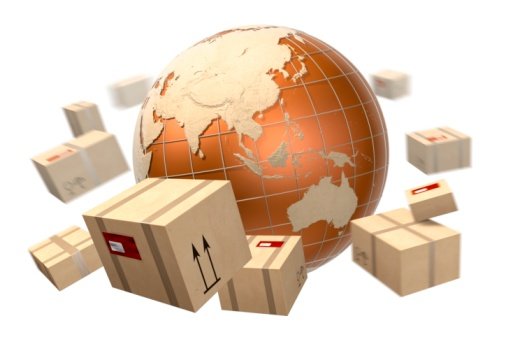A strategy which acts as the basis for firms to sell its products and services beyond the domestic market is called as an international strategy. The organisations try to follow this international strategy because it can acquire potential market opportunities. Operating business in both domestic and international markets maximizes revenues and it provides a scope for international diversification to extend product life cycle. The industries such as clothing, electronics, watch making, minerals and energy have extended its operations to foreign countries with the intention of reducing costs. In the case of few industries, huge investment is required to minimize the cost when compared to fulfilling the demand for the domestic market.

International business helps in introducing their culture and helps the customers in becoming habituated to the familiar trends, by this the firms can also gain huge market share and provides a scope for global communication. The factors like currency fluctuations make the firms distribute its operations in various countries which help in minimizing the risk involved in devaluation in one country. Operations in abroad still facing a problem with culture, politics, traditions etc, but it has the ability to carry out its operations abroad and its government facilitates foreign direct investment so that it can have a strong relationship with other countries.
Benefits of international strategy:

Increased market size
The size of an international market has a significant influence on firms as they can invest in research and development to gain competitive advantage. Organisations usually prefer to invest in those countries which have scientific knowledge so that the firms can make optimum utilization of research and development activities to gain competitive advantage. Firms belonging to domestic markets having low growth opportunities always prefer international strategy to expand their operations and to earn profits across the world.
Economies of scale
Expanding firms operations reduce the total cost of the product and integration of critical resource functions results in optimal economies of scale. Organisations can gain core competencies with the help of resources and knowledge sharing with other countries through international markets. Knowledge sharing helps in expand its operations and to produce efficient products and services at cost effectiveness.
Return on investment
Huge markets are crucial in acquiring returns especially for capital-intensive investments like plant and capital equipment or research and development. The new technological changes and new products sometimes cannot fulfill the customer’s need so the firm’s role is to maintain investments in such a way to attract the prospective customers. Organisations always strive to develop new technology and products but at the same time, they should adopt the strategies to protect their intellectual property rights from their competitors. The international expansion provides the scope for larger markets and enables the firms to enhance its operations efficiently in terms of capital investments and large-scale research and development expenditures.
Factors that provide a basis for international business level strategy
The home country of operation is the critical aspect in international business level strategy and serves the base for gaining competitive advantages. Resources which are well setup in home country facilitate firms to carry out their strategies into markets which are located in other countries. The factors which help in international business level strategy are firm’s strategy, structure, factors of production, demand conditions, relating and supporting industries.

International expansion is achieved by exporting products, participating in licensing arrangement, forming strategic alliances, making acquisitions and establishing new wholly subsidiaries. Five modes of international expansion are exporting, licensing, strategic alliances, acquisitions and new wholly owned subsidiary.
Exporting
The process of producing goods in the home country or third country and transporting those produced goods to other countries is termed as Exporting. It is a very popular mode used to enter into the foreign markets because; it is an easy, economical and less risky mode of entry. Apart from this exports are used as strategic methods to overcome excess production.

Exporting is not only applicable for big companies; even small companies also gained advantages from exporting. The numbers of companies involving themselves in the exporting activity across the world are increasing due to the ease of this business. The number of export opportunities has increased with the reduction in trade barriers and increase in regional economic agreements like the European Union, North American free trade agreement. The logistical problems concerning exporting are sorted out with new communication and transportation technologies. Use of technology in exporting has minimized the cost of exporting.
Licensing
Licensing is a method of market entry; a company can gain market presence without any equity investment. A company assigns the right to a patent or a trademark to another company for a fee or royalty is termed as licensing. Licenses are signed for a variety of time periods. Depending on the investment needed to enter the market, the foreign licenses may insist on a longer licensing period to recover the initial investment. The license will make all necessary, capital investments such as machinery, inventory and so on.
Strategic Alliances
Strategic alliance refers to cooperation between two or more companies. These alliance partners have the common goal and shared control to attain mutual benefits. A strategic alliance can be defined as a cooperative strategy because; companies integrate few of their resources, skills and capabilities with an intention to build competitive advantage. The International strategic alliance is an alliance form by a domestic company with the foreign company.

Nature of Strategic Alliance
Strategic alliance refers to cooperative agreements between the companies. Companies which have entered into alliance or cooperative agreement share technology carry out the research work together, make use of manufacturing facilities together, market products produced by one another or assembled final products jointly or make combined efforts to produce products or components. Equity alliances, non-equity alliances and joined ventures are the three types of strategic alliances.
Acquisition
Mergers and acquisition are used as a base for the domestic firms to enter into the international business. For the purpose of entering into the international business, domestic firms chose a foreign firm and merges with it. An alternative approach adopted by the firms to enter into the international business involves the purchase of foreign firm and the acquisition of the ownership and it is controlled by the domestic firm. The entry strategy provides an immediate access to the foreign production facility and marketing network.

New Wholly Owned Subsidiary
Many companies export directly to their own sales subsidiaries and assume the role of the independent distributor by stocking the manufacturing products, selling to the buyers and assuming the credit risk. The sales subsidiary offers the manufacturers for the control of selling operations in a foreign market. This will be mostly important if the company’s products require the use of special marketing skills, such as advertising or selling. Exporter finds it possible to transfer or export not only the product but also the entire marketing product that often makes the product a success. The operation of a subsidiary adds a new dimension to a company’s international marketing operation. It requires the commitment of capital in a foreign country, primarily for the financing of accounts receivables and inventory. The operation of a sales subsidiary entails a number of general administrative expenses that are essentially fixed in nature.




